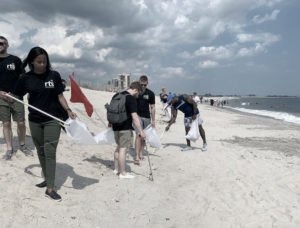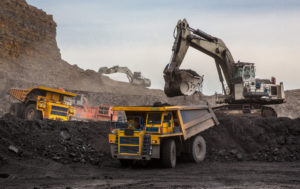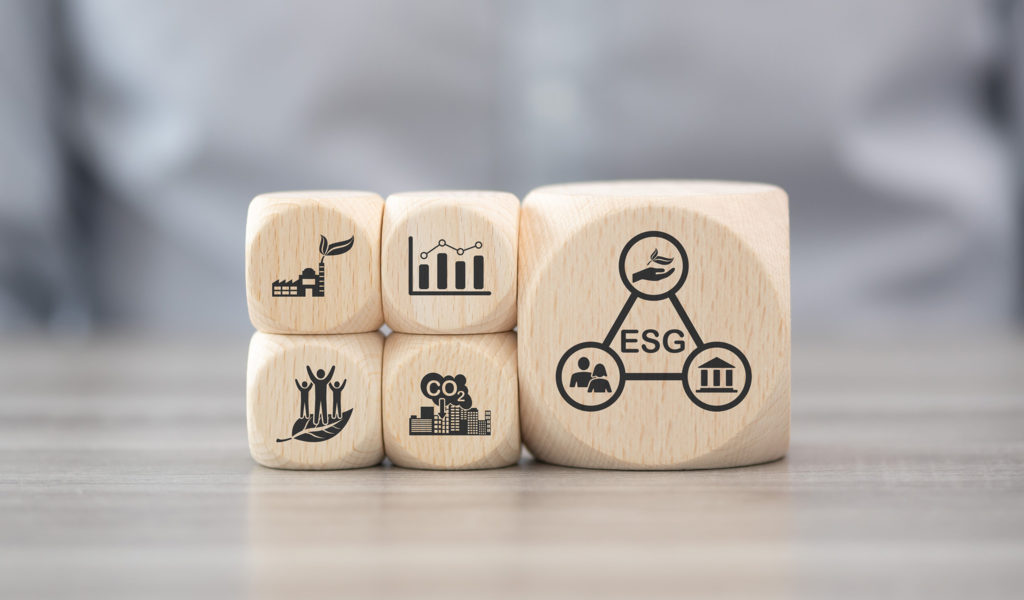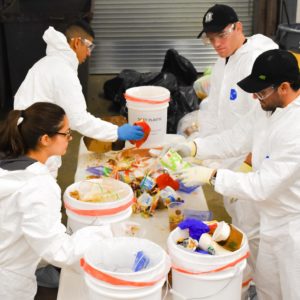 It wasn’t too long ago that sustainability was seen as something that businesses were obliged to do. A requirement imposed from outside by a combination of public pressure and growing legislation. But in recent years, sustainability has transitioned from something businesses would do grudgingly or as an afterthought into a genuine part of their core strategy.
It wasn’t too long ago that sustainability was seen as something that businesses were obliged to do. A requirement imposed from outside by a combination of public pressure and growing legislation. But in recent years, sustainability has transitioned from something businesses would do grudgingly or as an afterthought into a genuine part of their core strategy.
The ongoing climate crisis and effects of the COVID pandemic have seen huge shifts in public and business opinion. This has pushed sustainability and environmental issues up the list of priorities for many businesses around the world. Research has shown that businesses with higher levels of environmental responsibility are outperforming those that are less sustainable in both the short and long term. So, what can we expect in terms of business sustainability in 2022?
Below we will take a closer look at some key sustainable business trends that you might start to see as we head further into 2022.
Major Trends in Sustainable Business Today
Data Becomes More Important
It’s not enough for businesses simply to state their good intentions when it comes to sustainability. Decisions that affect both the future of the company and the wider world need to be data driven.

Data can be used to streamline stock processes and minimize waste as well as assisting businesses to make more efficient decisions. A combination of data and AI systems will allow a greater degree of flexibility and responsiveness across the organization.
Take, as an example Ontario Power Generation, which was able to use data produced by its large hydroelectric plants as well as AI to detect a drop in air cooling performance, saving the company more than $200,000 in one single catch. Quick intervention can help to shut down wasteful processes, reducing both loss and waste.
As well as using data to reduce waste, the publicizing of data can help to improve climate reporting and ensure businesses are doing more to reduce their impact. This increased transparency in business gives both shareholders and stakeholders a clearer picture of what is going on and makes businesses more accountable—helping companies to avoid inadvertent greenwashing practices.

Source: rts.com
Testing Net Zero Pledges
The term ‘greenwashing’ refers to the practice of using sustainable policies as a positive marketing strategy but without following through—either intentionally or unintentionally. Around one fifth of the largest 2,000 publicly owned companies in the world have committed to net zero strategies, but 2022 you can expect some of these claims to be put to the test, hopefully signaling an end to greenwashing.
This may happen through a process of accreditation by the UN-backed Science Based Targets Initiative. Net zero was one of the biggest sustainable energy trends that shook up business in recent years, and this year we get to see who was taking these goals seriously and who was using them to garner a favorable reputation. Businesses will now be forced to examine the full extent of their carbon footprint through the supply chain.

Source: rts.com
Sustainable Transport
Declarations from the COP26 conference have outlined that a majority of zero emission cars will be available for sale from 2040, which will force manufacturers to alter the way they produce vehicles.
Efforts will be made in the road and rail transport industries to try and reduce footprints and work towards these goals. In addition, pilot testing for planes that use hydrogen fuel cells is set to happen within the next 12 months.
Nature-based Solutions
In the wake of COVID19, it’s clear the natural world can have a colossal impact on business. In fact, this has perhaps never been more starkly apparent. So, in 2022 we can expect the business world to pay closer attention to the natural world, working with nature rather than against it.
Schemes such as growing seaweed in the tropical waters off the coast of the US can help to support large scale production of biomass fuel. Other projects such as support for the development of seagrass can have potentially beneficial consequences in terms of reducing the threat of storm surges and boosting marine life populations.
A Shift From Shareholder to Stakeholder Operations
As awareness of environmental issues has grown in recent years, there is now a greater focus on stakeholders rather than shareholders. Stakeholders are those with an actual relationship with the business, such as employees, customers, and local communities, as opposed to shareholders who simply have a financial interest in the success of the business.
In 2022 we may likely see a greater emphasis on keeping stakeholders happy through greater environmental and social initiatives rather than simply focusing on the bottom line and shareholder satisfaction.
Reduced Waste Remains a Core Target
For many businesses, reducing waste products remains a fundamental part of their sustainability strategy. In addition, producing less waste means dealing with less waste, which can lead to huge savings and greater profitability. Part of this comes from a greater reliance on data, as mentioned above, helping to streamline business processes. But it can also be all about dealing with the waste you do produce in better ways as you strive toward a zero waste future.
This means reusing, recycling, and composting. For many businesses, developing and implementing these strategies involves diverting too much time and energy away from core operations. Which is why RTS offers a more comprehensive, sustainability-focused approach to waste management.
Our TRUE advisors can help you and your business to deal with waste in a much more sustainable and cost-effective way through a variety of approaches. From developing a waste strategy through effective waste assessments to responsible, transparent collection and data to support your operations, we offer complete waste services for both businesses and communities.
For more information, contact our TRUE advisors today to arrange a free waste assessment or to discuss the needs of your business in 2022.




